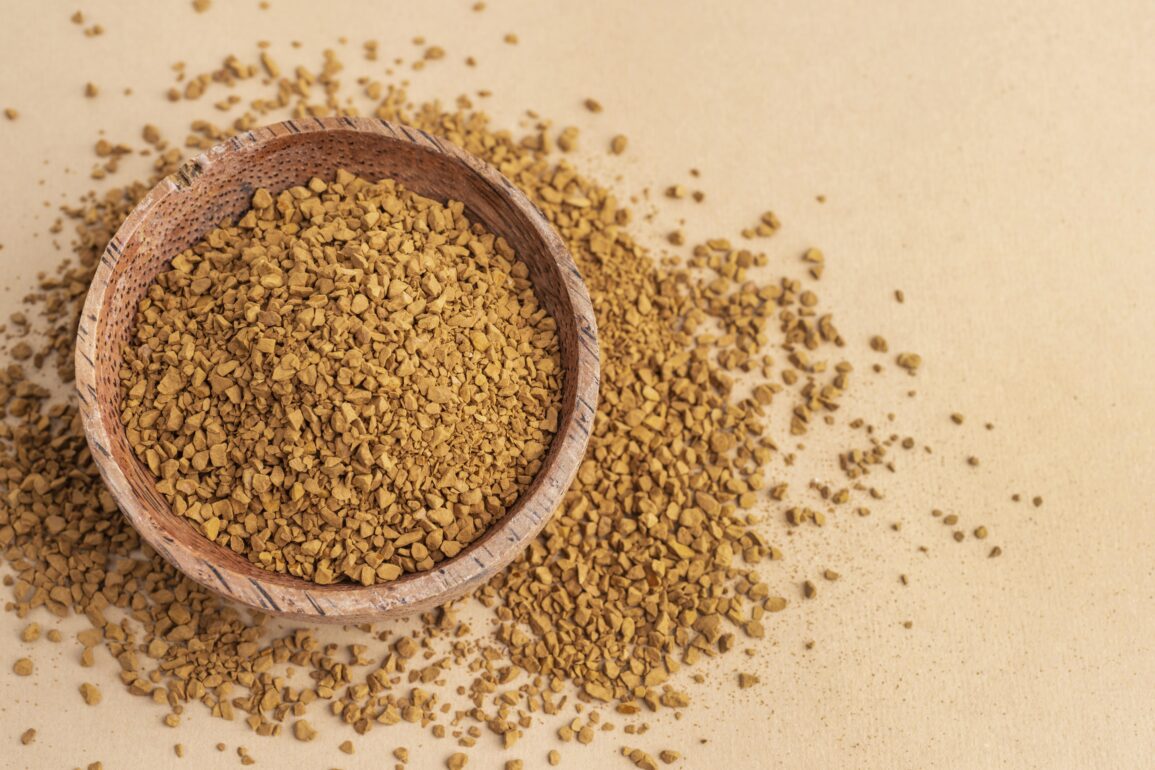You may be looking for a natural remedy to boost hair health, reduce hair fall, and stimulate new growth. In this case, fenugreek for hair growth is a popular and time-tested option. In this comprehensive guide, we’ll explore everything you need to know about using fenugreek for hair growth. This includes what fenugreek is, why it works, how to use it properly, what benefits you can expect, risks to watch out for, and how it compares with other remedies.
The phrase fenugreek for hair growth appears throughout this article because it is central to each section — from understanding its composition to methods of application and benefits. By the end, you should feel confident applying fenugreek for hair growth in your own hair care routine.
What Is Fenugreek?
Botanical Profile and Nutrition
Fenugreek (scientific name Trigonella foenum-graecum) is a plant herb from the legume family. Its seeds and leaves are commonly used as a spice and medicinal herb across South Asia, the Middle East, and Mediterranean regions. When we talk about fenugreek for hair growth, we usually refer to preparations made from fenugreek seeds or sometimes fenugreek leaves (but seeds work a lot better).
The seeds of fenugreek contain a wealth of nutrients and bioactive compounds. Some important constituents include:
- Protein: Fenugreek seeds have a relatively high protein content, which is beneficial for repairing damaged hair.
- Mucilage (galactomannan): This sticky, gel-like fiber helps coat the hair shaft, reduce friction, and lock in moisture.
- Saponins: These act as natural cleansers and may help remove scalp buildup.
- Flavonoids and phytochemicals: Fenugreek contains compounds like diosgenin, flavones, and phenolic acids with antioxidant and anti-inflammatory effects.
- Vitamins and minerals: It includes vitamins A, B6, C, and minerals like iron, copper, and magnesium — all necessary for healthy hair follicles and scalp circulation.
Because of this nutrient profile, fenugreek is well suited to support hair, which is why many advocates emphasize fenugreek for hair growth across traditional and modern hair care regimens.
Historical and Traditional Uses
Fenugreek has a long history across Ayurvedic, Unani, and folk medicine systems. Traditionally, it has been used for:
- Digestive issues, as a galactagogue (to support lactation), and to regulate blood sugar.
- Skin care (soothing, anti-inflammatory) and scalp treatments.
- Hair care: in many Indian households, women have soaked and applied fenugreek seed paste to the scalp to reduce hair fall and enhance luster.
Given this historical use, modern enthusiasts for natural hair treatments often default to fenugreek for hair growth as a base or additive ingredient. The centuries of anecdotal success provide a strong motivation to investigate and validate its benefits scientifically.
Why Use Fenugreek to Grow the Hair?
Active Components that Promote Hair Health
When you ask “why fenugreek for hair growth works,” the answer lies in its unique combination of compounds:
- High Protein and Amino Acids: Hair is made mostly of keratin (a protein). Fenugreek’s protein helps supply raw materials to repair weak or split strands and support the building blocks for new growth.
- Mucilage (Galactomannan): This sticky gel coats the hair shaft, helping to reduce breakage, seal in moisture, and smooth the cuticle. Good moisture retention supports better growth and less brittleness.
- Diosgenin & Phytoestrogens: Fenugreek contains diosgenin, a steroidal sapogenin that mimics estrogenic activity. Some researchers suggest that phytoestrogenic compounds can influence the hair growth cycle by promoting the anagen (growth) phase, which is why fenugreek for hair growth is particularly recommended in hormonal hair thinning or stress-related hair fall.
- Saponins & Natural Cleansing Action: The saponins in fenugreek provide gentle detergent-like cleansing effect, helping to remove oil, grime, and scalp build-up without harsh surfactants. A clean scalp environment is essential for fenugreek for hair growth to act effectively.
- Antioxidant & Anti-Inflammatory Agents: The flavonoids and phenolic acids help reduce oxidative stress and inflammation on the scalp. Chronic inflammation can impede hair follicle function. Therefore, by reducing inflammation, fenugreek for hair growth may help maintain healthier follicles.
- Vitamins and Minerals: The trace elements (iron, copper, magnesium) and vitamins in fenugreek feed the scalp and support microcirculation — both vital for delivering nutrients to hair follicles.
This multifaceted action—hydration, nourishment, stimulation, cleansing, and protection—makes fenugreek for hair growth more than just a folk remedy. It gives a biochemical rationale for why many people see visible improvements.
Scientific Studies Supporting Fenugreek for Hair Growth
While large clinical trials are limited, several studies and small experiments hint at the promise of fenugreek for hair growth:
- In vitro / laboratory studies: Some studies have examined the effect of fenugreek extract on hair follicle cells and observed enhancements in cell viability and proliferation, suggesting that fenugreek compounds may stimulate dormant follicles.
- Animal experiments: In certain rodent models, topical application of fenugreek extracts or gels resulted in accelerated hair regrowth compared to control groups.
- Human anecdotal and pilot trials: Many small-scale user reports (often in forums or natural health blogs) state that regular use of fenugreek-based pastes, oils, or masks reduces hair fall and increases shine and thickness — aligning with the claims of fenugreek for hair growth.
It is fair to say that while conclusive large-scale human trials are missing, the mechanistic evidence and anecdotal support offer a compelling case for trying fenugreek for hair growth, especially as a low-risk, natural alternative or complement to conventional hair treatments.
How to Use Fenugreek for Hair Growth (Preparations and Recipes)
Using fenugreek for hair growth is simple, but how you prepare it makes a huge difference in the results. The seeds can be soaked, ground, or infused into oils depending on your hair’s needs. Let’s explore the most effective and popular ways to prepare and use fenugreek for hair growth at home.
Fenugreek Seeds Soak or Paste
The most basic and traditional form of fenugreek for hair growth is a soaked seed paste. This method helps release the mucilage and nutrients from the seeds, creating a natural conditioner and hair-strengthening mask.
How to Prepare:
- Take 2–3 tablespoons of fenugreek seeds.
- Soak them overnight in a cup of water.
- The next morning, grind the softened seeds into a smooth paste using the same water.
- Apply this paste directly to your scalp and hair roots.
- Leave it on for 30–45 minutes, then rinse thoroughly with lukewarm water.
This paste strengthens hair follicles, reduces dandruff, and encourages fresh growth. The mucilage acts as a natural conditioner, leaving your hair silky, soft, and easy to manage. If you are struggling with excessive hair fall, using this fenugreek for hair growth mask twice a week can make a noticeable difference in a month or two.
Fenugreek Oil Infusion
If you prefer oil-based treatments, a fenugreek-infused oil is another powerful way to use fenugreek for hair growth. The infusion extracts the nutrients from the seeds into a carrier oil that nourishes both scalp and hair.
How to Prepare Fenugreek Oil:
- Lightly crush 2 tablespoons of fenugreek seeds.
- Heat 1 cup of coconut oil, castor oil, or olive oil in a small pan until warm.
- Add the crushed fenugreek seeds.
- Let the mixture simmer on low heat for 10–15 minutes.
- Turn off the heat and allow it to cool.
- Strain and store it in a glass bottle.
Massage this oil onto your scalp twice a week. Leave it overnight or for at least 2–3 hours before washing it off with mild shampoo. Regular application of fenugreek oil for hair growth strengthens hair roots, boosts circulation, and stimulates dormant follicles.
Fenugreek Hair Mask Recipes
Using fenugreek for hair growth doesn’t stop at paste or oil. You can combine it with other natural ingredients to create potent hair masks that target specific issues.
1. Fenugreek + Coconut Milk Mask:
- 2 tbsp fenugreek seed paste
- 4 tbsp coconut milk
This mask deeply hydrates dry hair and adds shine. Apply weekly for smooth and frizz-free results.
2. Fenugreek + Aloe Vera Mask:
- 2 tbsp fenugreek paste
- 2 tbsp fresh aloe vera gel
Aloe vera amplifies the moisturizing and soothing effects of fenugreek for hair growth. This is what makes it perfect for sensitive scalps.
3. Fenugreek + Yogurt Mask:
- 2 tbsp fenugreek paste
- 3 tbsp yogurt
This combination strengthens hair and reduces dandruff while enhancing shine and volume.
4. Fenugreek + Curry Leaves Mask:
- Blend a handful of curry leaves with soaked fenugreek seeds.
Curry leaves are rich in beta-carotene and antioxidants that complement fenugreek for hair growth and help reduce premature graying. These DIY masks are inexpensive and easy to make, providing a holistic approach to hair care.
Fenugreek + Other Ingredients
You can also enhance fenugreek for hair growth benefits by mixing it with other nourishing natural ingredients:
- Coconut oil – for deep conditioning and shine.
- Amla (Indian gooseberry) – for scalp rejuvenation and reducing hair fall.
- Castor oil – to thicken hair strands.
- Rosemary oil – stimulates follicles and complements fenugreek’s effects.
- Honey – for extra moisture retention.
Combining these ingredients with fenugreek for hair growth amplifies the overall effectiveness, addressing multiple hair concerns simultaneously.
Step-by-Step Application for Using Fenugreek to Grow the Hair
Even if you prepare the perfect fenugreek mixture, how you apply it determines how well your hair absorbs the nutrients. Here’s a detailed breakdown of the best methods to apply fenugreek for hair growth effectively.
Pre-wash Treatment
The pre-wash method is ideal if you prefer to avoid sticky masks or don’t have much time.
- Warm up your fenugreek oil slightly.
- Massage it gently into your scalp for 5–10 minutes in circular motions.
- Let it sit for 30 minutes before shampooing.
This technique nourishes the scalp and ensures that your hair doesn’t lose moisture during washing. Regular pre-wash treatments with fenugreek for hair growth can prevent dryness and improve texture.
Leave-in Treatment
Some people prefer using fenugreek water or fenugreek spray as a leave-in conditioner. It’s lightweight and provides constant nourishment.
How to Make Fenugreek Leave-in Spray:
- Soak 1 tbsp fenugreek seeds overnight.
- Strain the water in the morning and pour it into a spray bottle.
- Mist it onto your scalp and hair daily.
This fenugreek for hair growth spray adds shine, reduces frizz, and maintains hydration without making your hair greasy.
Overnight Treatment
For deeper nourishment, an overnight application works wonders. Apply fenugreek oil generously to your scalp and hair length, cover with a shower cap, and let it work overnight. The long contact time allows the nutrients to penetrate deeply into the roots. Wash it off the next morning with a gentle shampoo. Repeating this once or twice weekly can show visible hair growth improvements within 4–6 weeks.
Frequency and Duration
Consistency is key when using fenugreek for hair growth. Here’s a suggested schedule:
- Hair Masks: Once or twice a week.
- Fenugreek Oil: Twice weekly.
- Fenugreek Spray: Daily use (optional).
Results may vary, but most people start seeing reduced hair fall and improved shine within 3–4 weeks. By the second month, new baby hairs (short regrowth strands) become visible. This is evidence that fenugreek for hair growth is truly working.
Benefits of Using Fenugreek to Grow The Hair
When used consistently, fenugreek for hair growth delivers a wide range of benefits. From controlling hair fall to promoting shiny, thick locks. Let’s explore these advantages in detail.
Prevents Hair Loss
Hair loss can result from stress, hormonal imbalance, poor diet, or harsh products. Fenugreek helps tackle all of these. The proteins and phytoestrogens in fenugreek seeds strengthen hair shafts and follicles, preventing breakage and shedding. Moreover, fenugreek’s antioxidant properties protect against free radicals that damage follicles. No wonder so many natural beauty experts recommend fenugreek for hair growth as a first step in preventing hair thinning.
Strengthens Hair Follicles
The nutrients in fenugreek—iron, lecithin, and amino acids—feed hair follicles directly. Stronger follicles produce thicker, healthier strands. Regular oil massages with fenugreek for hair growth improve blood circulation, ensuring that essential nutrients reach the root zone.
Adds Shine and Softness
Fenugreek is rich in mucilage, a natural conditioner that smoothens the hair cuticle. This reduces tangling, frizz, and dryness. If your hair feels dull or lifeless, applying a fenugreek hair mask once a week restores shine and silkiness.
Scalp Health and Dandruff Reduction
Poor scalp health can hinder hair growth. The antifungal and anti-inflammatory properties of fenugreek for hair growth help cleanse the scalp, remove buildup, and balance sebum levels. This makes it excellent for people suffering from dandruff, itchiness, or flaky scalp.
Promotes New Hair Growth
Finally, the biggest benefit of all: fenugreek for hair growth actually promotes new hair formation. Diosgenin, along with fenugreek’s protein and vitamin content, stimulates dormant follicles, pushing them into the growth (anagen) phase. This results in thicker, denser hair over time.
Risks, Side Effects, and Precautions of Using Fenugreek for Hair Growth
Fenugreek for hair growth is usually natural and generally safe. But it is still essential to understand possible side effects and precautions. Every scalp and skin type is different, so what works beautifully for one person may cause irritation for another. Let’s explore the risks in detail.
Possible Allergic Reactions
One of the most common concerns when using fenugreek for hair growth is allergic reactions. Although rare, some people may develop itching, redness, or a rash after applying fenugreek paste or oil. This reaction often occurs due to individual sensitivity to saponins or alkaloids present in the seeds.
How to Prevent It:
- Always do a patch test before applying fenugreek-based products to your entire scalp.
- Apply a small amount of fenugreek paste or oil to your inner elbow or behind the ear.
- Wait for 24 hours. If no irritation occurs, it’s generally safe to use.
- If itching, burning, or swelling appears, rinse immediately and discontinue use.
Even natural ingredients can cause irritation depending on your skin type, so it’s best to test first before committing to fenugreek for hair growth long term.
Overuse and Scalp Irritation
Fenugreek is highly potent. Overuse, especially of concentrated fenugreek pastes or oils, can lead to scalp buildup or dryness in some individuals. Using fenugreek for hair growth too frequently (daily masks or oiling) can make your scalp greasy, attracting dust and dirt, which might clog hair follicles.
Tips to Avoid Overuse:
- Stick to 1–2 applications per week.
- Rinse your hair thoroughly after every fenugreek treatment.
- Use mild, sulfate-free shampoos to remove residue.
- Avoid leaving fenugreek masks on for longer than 1 hour.
Moderation ensures you reap the benefits of fenugreek for hair growth without side effects.
Pregnancy, Medical Conditions and Contraindications
Fenugreek contains phytoestrogens that mimic estrogenic activity. While topical use is generally safe, pregnant or breastfeeding women should consult their doctor before using fenugreek for hair growth—especially in large quantities or in oil form. Ingesting fenugreek supplements can also affect blood sugar and hormone levels, so individuals with diabetes or thyroid conditions should use caution.
In summary:
- Topical fenugreek masks and oils are safe when used externally and moderately.
- Avoid internal consumption if pregnant, nursing, or taking medications unless approved by a physician.
Understanding these precautions ensures your fenugreek for hair growth journey remains safe and effective.
Comparing Fenugreek for Hair Growth with Other Natural Remedies
Natural hair care is full of options—rosemary, onion juice, castor oil, and more. But how does fenugreek for hair growth stack up against these popular choices? Let’s compare them side by side.
Fenugreek vs. Rosemary Oil
Rosemary oil is well-known for improving scalp circulation and stimulating hair follicles. Research even suggests it performs comparably to minoxidil (a medical hair growth treatment). When compared to rosemary oil, fenugreek for hair growth offers additional benefits in conditioning and moisturizing due to its mucilage content.
Key Comparison:
| Property | Fenugreek | Rosemary Oil |
|---|---|---|
| Moisturizing | Excellent | Moderate |
| Circulation Boost | Good | Excellent |
| Dandruff Control | Excellent | Good |
| Ease of Use | Simple | Requires dilution |
| Best For | Dry, frizzy, shedding hair | Thinning, slow-growing hair |
Verdict: Combining both is ideal. Use fenugreek paste or oil along with rosemary essential oil for maximum results. Together, they amplify each other’s growth-promoting powers.
Fenugreek vs. Onion Juice
Onion juice is famous for its sulfur content, which strengthens hair strands and prevents breakage. However, the strong odor often deters people from using it regularly. Fenugreek for hair growth, on the other hand, provides similar strengthening effects without the unpleasant smell.
Comparison Highlights:
| Aspect | Fenugreek | Onion Juice |
|---|---|---|
| Smell | Mild, nutty | Strong, pungent |
| Hair Softening | Excellent | Low |
| Anti-Hair Fall | Excellent | Excellent |
| Ease of Rinsing | Easy | Difficult |
| Scalp Sensitivity | Gentle | Can cause irritation |
Verdict: If you’re looking for a gentler, better-smelling, and more moisturizing alternative, fenugreek for hair growth wins hands down.
Fenugreek vs. Castor Oil
Castor oil is widely praised for its ability to thicken hair and stimulate growth due to its high ricinoleic acid content. However, it’s heavy and can clog pores if not used properly. In contrast, fenugreek for hair growth offers a lighter, nutrient-rich approach that can be used more frequently.
| Property | Fenugreek | Castor Oil |
|---|---|---|
| Consistency | Light | Thick |
| Scalp Absorption | Fast | Slow |
| Ideal For | All hair types | Dry, brittle hair |
| Dandruff Control | Excellent | Moderate |
| Frequency of Use | 2–3x weekly | 1x weekly |
Verdict: Combine castor oil with fenugreek oil to balance nourishment with manageability. This duo boosts growth while maintaining scalp cleanliness.
Real Results and Testimonials: Fenugreek for Hair Growth in Practice
There’s no shortage of real-world success stories showing how effective fenugreek for hair growth can be. From personal experiences to before-and-after case studies, let’s explore what users have achieved with consistent application.
Before-and-After Case Studies
- Case Study 1 – Postpartum Hair Loss:
A 30-year-old woman experiencing severe postpartum hair fall began using a fenugreek seed paste twice weekly for three months. By week six, her hair fall reduced by 60%, and by the third month, visible new hair growth appeared along her hairline. - Case Study 2 – Dandruff and Itchy Scalp:
A man suffering from persistent dandruff used fenugreek water spray daily as a leave-in toner. Within three weeks, the itchiness decreased significantly, and scalp flakes reduced by 80%. He continued the treatment for maintenance. - Case Study 3 – Hair Thinning and Dryness:
A woman mixed fenugreek for hair growth oil with aloe vera gel and massaged it into her scalp twice a week. In two months, she noticed thicker, shinier hair and fewer split ends.
These real-life transformations demonstrate that fenugreek for hair growth can yield visible results when used consistently and correctly.
User Reviews and Experiences
Online forums, social media, and natural beauty communities are filled with glowing reviews about fenugreek for hair growth. Common observations include:
- “My hair feels thicker and softer after just three applications!”
- “Fenugreek reduced my hair fall like nothing else. Totally natural and inexpensive.”
- “It smells slightly like maple syrup but it’s worth it for the results.”
- “I noticed baby hair growing around my forehead within a month!”
While not everyone achieves instant results, consistent users of fenugreek for hair growth typically report improvement within 4–6 weeks. As with any natural remedy, patience and consistency are key.
Frequently Asked Questions About Fenugreek for Hair Growth
1. How often should I use fenugreek for hair growth?
Use fenugreek-based masks once or twice a week and fenugreek oil two to three times a week. Consistency is more important than frequency.
2. Can I leave fenugreek paste overnight?
It’s not recommended. Fenugreek paste may dry out and harden, making it difficult to rinse. Instead, leave it for 30–45 minutes for the best results.
3. Does fenugreek make hair thicker?
Yes! Regular use of fenugreek for hair growth strengthens roots and stimulates dormant follicles, leading to thicker, fuller hair.
4. Can men use fenugreek for hair growth?
Absolutely. Fenugreek works equally well for both men and women to combat hair thinning, receding hairlines, and dandruff.
5. Does fenugreek darken hair color?
Fenugreek can slightly enhance the natural tone and shine of your hair but does not significantly change color. It gives hair a rich, healthy glow.
Conclusion
When it comes to natural remedies, fenugreek for hair growth stands out as one of the most effective, affordable, and easy-to-use solutions. Packed with protein, iron, lecithin, and mucilage, fenugreek nourishes the scalp, strengthens follicles, prevents breakage, and promotes new hair growth. Whether you use it as a paste, oil, or mask, this humble seed has the potential to transform your hair from dull and lifeless to thick and radiant.
Consistency, patience, and proper usage are key. Combine fenugreek for hair growth with a balanced diet, stress management, and gentle hair care practices to unlock your healthiest hair ever.
Final Takeaway:
Fenugreek is not just a kitchen spice—it’s nature’s gift for luscious, strong, and beautiful hair. Start today, stay consistent, and let fenugreek for hair growth work its magic on your locks.










